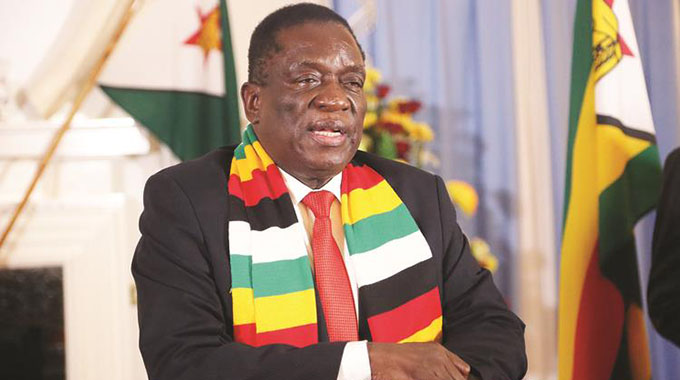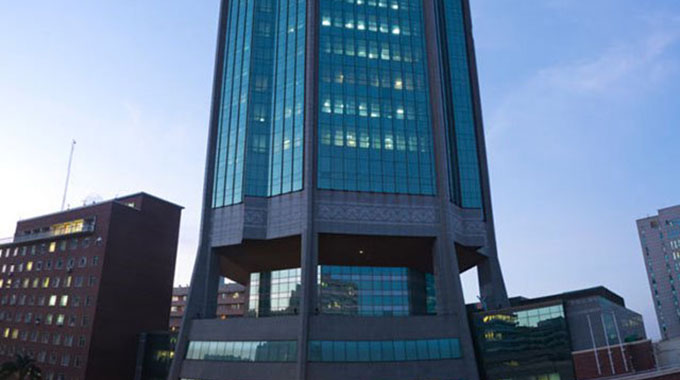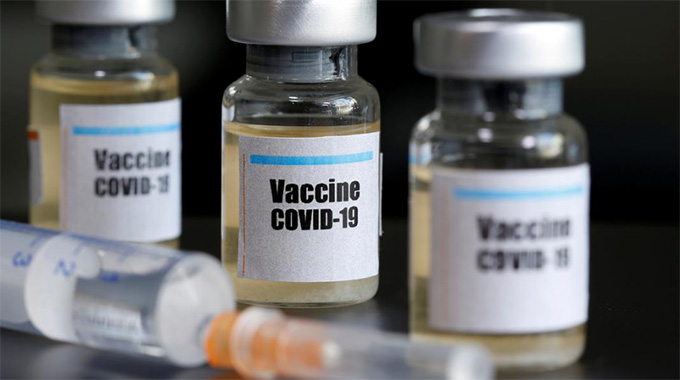Zim commits to anti-graft fight

Joseph Madzimure Senior Reporter
Government is committed to cracking down on corruption and improve work practices across the public sector towards enhancing accountability and transparency, President Mnangagwa has said.
He said to complete the efforts to fight corruption, an active, involved and empowered citizenry, with the appropriate values and practices that are averse to corruption, is of paramount importance.
Addressing the nation last night to mark the Africa Anti-Corruption Day, President Mnangagwa said Zimbabwe subscribed to the African Union Aspiration for Agenda 2063, in particular Aspiration 3, that speaks of an Africa with good governance, democracy and respect for human rights, justice and rule of law.
“Our country has also signed and domesticated other SADC and UN legal instruments against the scourge of corruption,” he said. “Moreover, we honour our various reporting obligations, on this matter.” President Mnangagwa described corruption as one of the continent’s greatest threats with negative and corrosive effects that hamper and reverse economic development, progress and stability.
He said the fight against corruption remained a serious and complex challenge as networks of corruption were becoming more sophisticated, and permeating all sections of society.
President Mnangagwa called for the building of strong and robust institutions to ensure all assets and natural resources benefited the majority rather than line the pockets of a few.
Since the coming in of the Second Republic, Government has prioritised the fight against corruption and declared zero tolerance to the vice.
“To this end, we continue evaluating progress in fighting corruption and have made several changes to legislation and adopted best practices,” said President Mnangagwa. “Specifically, the Zimbabwe Anti-Corruption Commission was reconstituted and capacitated to better deliver on its mandate as outlined in our national constitution.”
Further, Government has introduced special anti-corruption courts, a new special anti-corruption unit in the President’s Office, enacted the Public Entities Corporate Governance Act and required Cabinet members to declare their assets in a bid to fight corruption.
The re-training and re-orientation of personnel involved in the fight against corruption is on-going, and there are calls to expedite the enactment of the Independent Complaints mechanisms as outlined in the constitution.
Zimbabwe’s fight against graft has already claimed the scalps of Government ministers, Dr Obadiah Moyo (Health and Child Care) and Priscah Mupfumira (Public Service, Labour and Social Welfare). Dr Moyo was sacked this week on corruption allegations involving the procurement of drugs in a deal that saw the country losing millions of dollars, while Mupfumira was sacked after being charged for siphoning US$95 million from the National Social Security Authority (NSSA).
Both their cases are before the courts.
Former Director of State Residences Douglas Tapfuma and former Energy and Power Development Minister Samuel Undenge have been jailed on corruption charges, while former Secretary for Public Service and Social Welfare, Ngoni Masoka, is still in the courts on corruption charges.
President Mnangagwa challenged the private sector, civil society, political parties, churches and other socio-economic groups to cultivate integrity and high ethical standards in the execution of their various functions.
Members of the criminal justice system and those in institutions tasked to fight corruption have also been challenged to improve investigations into, and prosecution of corruption cases, while being upright themselves.
“They must be above reproach and must ensure that all cases of corruption within their rank and file are thoroughly investigated, with corrupt officials punished,” said President Mnangagwa. “The culture of long, drawn-out prosecutions and the ‘catch and release syndrome’ must come to an end.
“The arrest and successful prosecution of corrupt ‘big and small fish’ alike, must be the new normal.”
The President took advantage of the commemoration the Africa Anti-Corruption Day to launch the National Anti-Corruption Strategy for 2020-2024.
He said the strategy was a roadmap in the fight against corruption in Zimbabwe, adding that implementation of the strategy must be robust and responsive to changes and new realities that may emerge, and must build a tradition of integrity, honest and hard work.
President Mnangagwa noted the involvement of the public and private sectors, civil societies organisation, trade and industry, media and professional societies, among others, in the development of the Anti-Corruption strategy, adding that it was in keeping with Article 5 of the United Nations Convention against corruption.
He commended the media for their role in fighting corruption.









Comments